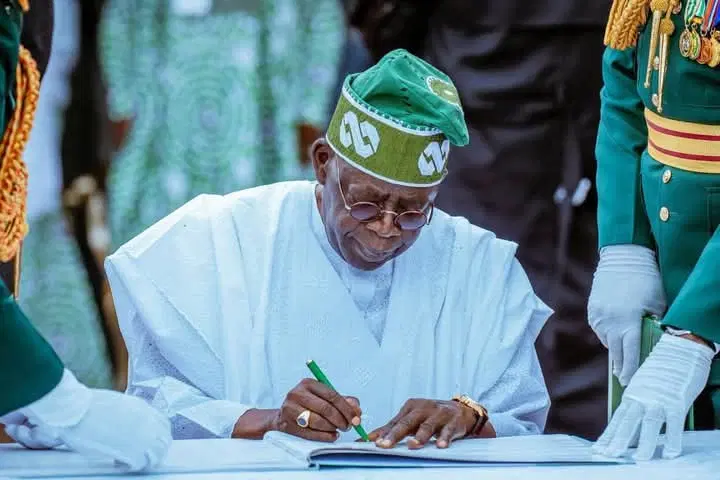
The Federal Government has proposed an increase to the 2025 national budget, raising it from N49.7 trillion to N54.2 trillion, an increase of 9.1 percent. President Bola Ahmed Tinubu officially requested the adjustment through a letter read at the National Assembly yesterday, citing the availability of an additional N4.53 trillion in revenue from key government agencies.
The increased budget aims to address Nigeria’s urgent needs and priorities, with N1.4 trillion coming from the Federal Inland Revenue Service (FIRS), N1.2 trillion from the Nigeria Customs Service (NCS), and N1.8 trillion from various government-owned enterprises. Senate President Godswill Akpabio has instructed the Senate Committees on Finance and Appropriations to expeditiously review the proposal, aiming for the approval of the new budget by the end of February.
Tinubu highlighted that the additional funds would help tackle critical national challenges, including economic diversification, infrastructure development, and security. Key allocations include N1 trillion for the solid minerals sector, N1.5 trillion for the recapitalization of the Bank of Agriculture (BoA) and the Bank of Industry (BoI), and N1.5 trillion for critical infrastructure projects.
While the budget increase has been welcomed by some as a positive move for economic growth, financial analysts have raised concerns. David Adonri, Executive Vice Chairman at Highcap Securities Limited, warned that the expansionary fiscal policy could exacerbate inflation and widen the fiscal deficit. Former CIS President Oluwole Adeosun also cautioned that while the increased revenue collection is positive, the growing deficit could be unsustainable.
Public analysts like Clifford Egbomeade expressed skepticism about the sustainability of the projected revenue increase, citing Nigeria’s history of revenue underperformance. He stressed that without proper oversight and strategic spending, the budget increase could lead to further economic instability, including higher inflation and debt servicing costs.
The proposal to increase the 2025 budget comes amid rising public concerns about the economic impact of government policies. Many Nigerians, including business leaders and entrepreneurs, have voiced frustration over inflation, rising tariffs, and the burden on low-income groups. Telecom companies, in particular, have been struggling with rampant inflation and have raised tariffs, further straining consumers already burdened by the economic challenges.
While the government argues that the increased budget is essential for addressing Nigeria’s long-term growth and development, critics are urging caution and transparency in its execution. The National Assembly will now scrutinize the budget amendment, with hopes of passing it swiftly for presidential assent.

Comments